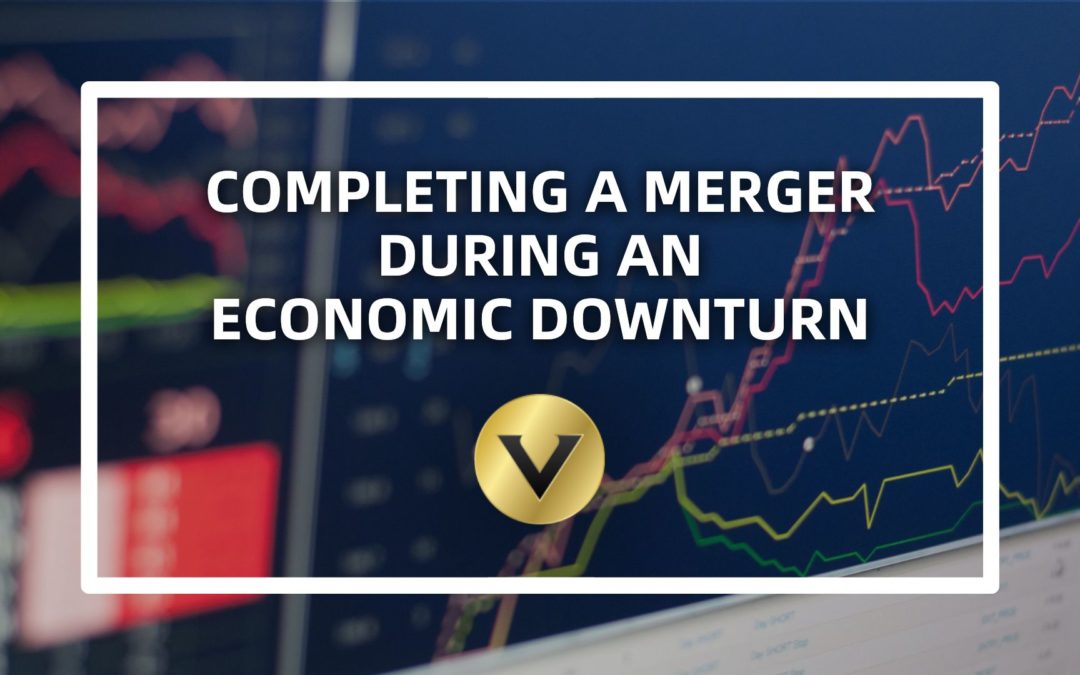When attempting to complete a merger during economic uncertainty, it is important to proceed with caution. Global dealmaking activity has been high in recent years due to an abundance of inexpensive capital sources and the sudden popularity of special purpose acquisition companies (SPACs). However, economic realities have not been fully adjusted, causing a disconnect between sellers and buyers in the M&A market. During a recession, it is important to pay close attention to corporate performance and create contingency plans for possible inflation and economic uncertainty. Taking a cautious approach when attempting to complete a merger during an economic downturn can help facilitate a successful transaction.
Completing a merger can be challenging due to the macroeconomic environment’s volatility, which can reduce M&A spending by up to half. Private equity sponsors have been struggling to access capital due to the leveraged finance markets seizing up in the U.S., with syndicated finance banks unable to adhere to commitments made prior to increasing interest rates and conflict in Ukraine. It’s, therefore, important for potential mergers to consider the challenges of accessing capital and the leveraged finance market when proceeding with the process. In addition, it may be beneficial to utilize the M&A underwrites that are currently available, which total approximately USD 100 billion, and represent a small portion of the overall market.
During periods of economic uncertainty, mergers are heavily impacted as corporations and private markets feel the pressure. Syndicated banks are experiencing a resurgence of costs relative to historic rates, which affects the ability of private equity to pay. Currently, there is a backlog of $100 billion on the M&A calendar, half of which is comprised of five deals. Private equity firms are struggling to make large deals work within their current price points, turning to limited partners to co-invest in the signing. However, corporate entities are competing for assets in Europe and Asia, taking advantage of the pulled private equity firms due to the turbulence presented by the conflict in Ukraine. The economy is proving more volatile than in past decades, leading private equity firms to rapidly reformat their operations in order to keep up with market trends. This event is creating an opportunity for many corporate entities to develop a competitive edge as private equity scrambles to maintain financial efficiency in the face of the economic downturn.
Valuation expectations are causing plummeting public market valuations, preventing companies from receiving the financing they need and creating a tense environment for their return expectations. Companies like fallen angels in the technology sector are being affected the most as bids for them diminish with their decreasing valuations. Despite this, some companies are still rewarded in the current climate of volatility and market uncertainty. Firms willing to conduct business during these times are being rewarded by the market with higher premiums and, subsequently, higher valuations. This risk can be a potentially lucrative strategy, as the market is rewarding firms that demonstrate growth and scale. Industrials and Technology saw the most M&A activity in the first half of 2022, with Fintech quickly following due to the lack of capital within other sectors. Yet, the market remains at odds with the implied cost of capital and expectations, making the actual evaluation process very high.
When discussing mergers and acquisitions, the importance of environmental, social, and governance (ESG) concerns cannot be overstated. These factors have become a key consideration in any transaction, and stakeholders have become more conscious of ESG elements and regulators more aware when analyzing a transaction. This is already a prevalent practice in Europe and is becoming more commonplace in the U.S. and Asia. Compliance, regulatory quality, data privacy, and cybersecurity are also becoming increasingly important in the M&A process. Financial institutions use ESG profiles to make lending decisions, meaning certain industries have an increased cost of capital. Corporations, in turn, acquire more sustainable companies and transition out of those that do not meet ESG standards.
Activist investors are another development that the industry has recently seen. They acquire a sizable stake in a company and then offer to buy it. This is of great concern to a corporate board, as activists may target the company’s ESG exposure and other matters. By leveraging ESG, activists force changes in the company’s management or governance. In order to complete a merger in an economic downturn, companies must keep in mind the importance of ESG when conducting due diligence. They also must be prepared for activist investors and any potential risks they pose. Companies must strengthen their ESG profile and be transparent in their reporting in order to mitigate such risks. Doing so will ensure that any merger or acquisition is viable even in an economic downturn.

